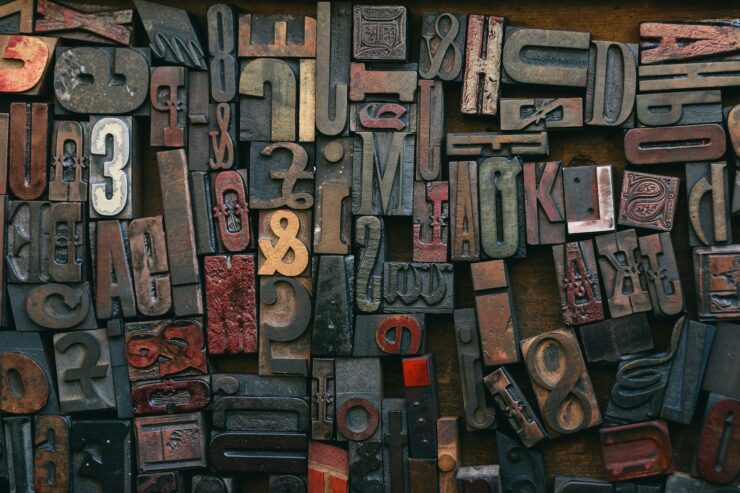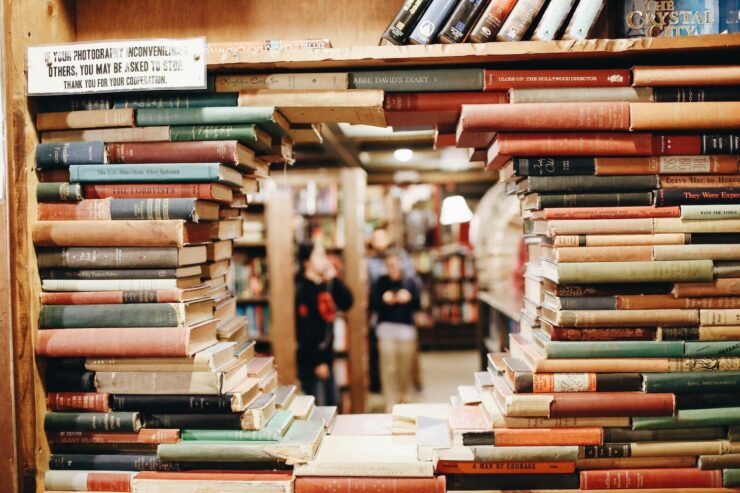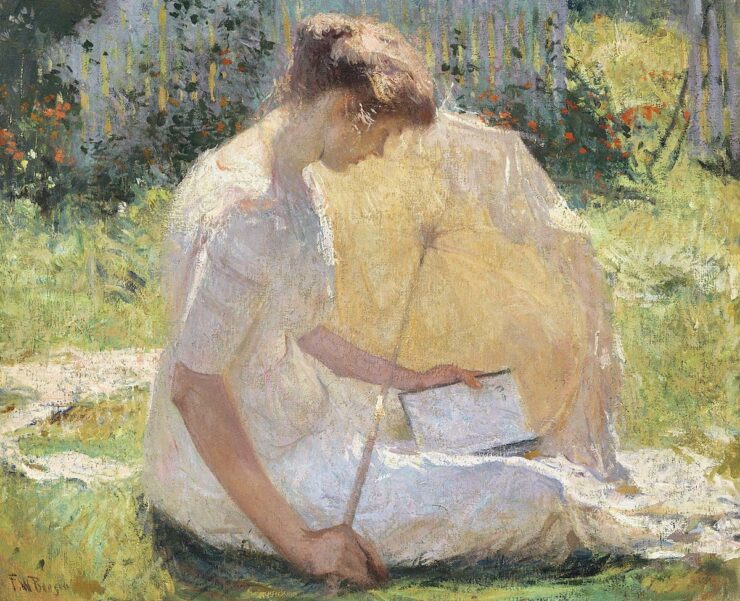This is the last Mark as Read column for the year, and all I can think about is the weather. In Portland, it feels like it has been raining for hundreds of days. It has not—it did not rain for most of the summer, so at very longest it might have been raining steadily since early October—but we are in the damp northwest doldrums. The once-pretty leaves have long since turned into sludge that sticks to boots; the gratitude I felt for the rain when it fell on the wildfires has turned into a sort of grudging respect.
Even my books look sort of damp and unappetizing, which is a weird feeling to have during what might be the best reading season of the year.
I’ve written about reading slumps before, and about seasonal books, but while this feeling shares ground with both of those ideas, it’s also its own thing. December, in this country, can be a lot: the expectations, the obligations, the sense that you’re supposed to feel festive, in one way or another. There are pretty lights everywhere! People are making all kinds of cookies! If you are the sort of person—and I am—who likes to get an evening drink at a bar patio, those patios are presently much more likely to offer warm drinks! What’s not to love?
Lately I mostly love soft pants, and also staying home.
I think I have a book hangover. Worse than that? A series hangover. I finished The Expanse and I don’t know what to do with myself.
SFF fans have plenty of series that we would very much like to see end. But wanting to find out what happens, to see how it all winds up—to, ahem, learn who really sits on the Iron Throne or whether it gets melted down for scraps—is not the same as wanting the story to be over. (Though possibly we’ve all had those reading experiences, too, where you just can’t stop reading even though you’re only in it for the minuscule satisfaction of knowing what the hell happened.)
In a way, The Expanse doesn’t feel truly over yet: the final season of the show just started, and there’s a lot of hope that the adaptation will return in some form. And I’m certainly not complaining about the ending; the last book is extremely satisfying in a way that feels unspoilable—could it have happened any other way?—but I know is not. (I also know that not everyone has time to read a book that long in a small number of days!)
What the book hangover is about, though, is that sense of an ending, the way all that grand closure can feel so big and heavy and intense, and how having that grand-finale feeling dovetail with the end of a very strange year is a lot for one little reading heart to take.
Do you ever set aside a book you’re reading because it’s just so good, so perfect, so exactly what you wanted that you can’t bear to get to the end? Imagine that feeling—that anticipation tinged with dread and anxiousness—except you already finished the book. That is a book hangover. The anticipation spills over and makes you think that any book, truly any book you pick up next will be perfect! But the dread ruins everything. No book is the book you just finished. No book can possibly satisfy. Even the one you just bought. Why did you buy it? Onto the shelf it goes, possibly to sit there until the heat death of the universe, or at least your next move.
So you switch gears. You read long and depressing articles about whether we will ever go back to “normal” and wonder why “normal” can’t be improved. You read something entirely different. I’ve been reading bits of Matthew Salesses’ Craft in the Real World, slowly, because it’s brilliant and wise and I want to remember it. I’ve been making piles of things I think I might want to read next, alternating fantasy with short stories with a nonfiction book about punk rock and selling out. I’ve been considering the overall shape and makeup of my reading this year and how maybe I want to offer myself some different flavors and concepts and ideas in the next two weeks. Maybe spend time with really challenging brains. Maybe just find a completely engrossing adventure I can obsess over as a mental palate cleanser.
Maybe I need book dessert. Maybe I need a reading schedule. Maybe I need a reading resolution.
I don’t really believe in those, though. If there’s one thing I hope people take away from these columns, it’s that reading is personal and intimate and as long as you’re reading widely and diversely and curiously, you’re basically doing it right. You don’t need to make lists or check off reading goals or resolve to read a history novel about every decade of the 20th century. You can, if that floats your boat and gets you turning pages. But I’m not sure those structured (and often corporatized) projects are as helpful as a sense of exploration can be. Let your reading life carry you from one book to the next, one interest to another, one author to a writer they recommend.
A book hangover is an especially weird thing to have in the season of year’s-best lists and most-anticipated lineups and the annual resurgence of Americans talking about Iceland’s jolabokaflod, which involves giving books as gifts on Christmas Eve and then spending the night reading. If you are not a big Christmas person, the solstice is right there, a perfect alternative evening for warm beverages and purring cats and a new book. Bliss! It really ‘tis the season.
But all the same, I just want to watch Hawkeye.
If you are not in the year-end spirit, come sit by me. I make a decent hot toddy and I can talk about just about every SFF series currently on TV, even though I really don’t understand why everyone loves The Witcher so much. We can watch that Christmas episode of Buffy and discuss why it is that Station Eleven really feels like it ought to be a January show instead of a December one.
And when the book hangover wears off—like it always does, and like it always will—the books will still be waiting. They’ll glint invitingly in the glow of non-denominational holiday candles. And we can all help each try to decide where to start.
What do you want to read next?
Molly Templeton lives and writes in Oregon, and spends as much time as possible in the woods. Sometimes she talks about books on Twitter.














